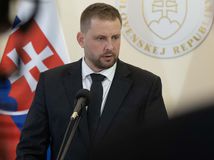It is thus only in post-religious “atheist” radical-emancipatory collectives that we find the proper actualization of the Idea of the Christian collective— the necessary consequence of the “atheistic” nature of Christianity itself.—Slavoj Zizek, Less Than Nothing: Hegel and the Shadow of Dialectical MaterialismBut this cometh to pass, that the word might be fulfilled that is written in their law, They hated me without a cause. But when the Comforter is come, whom I will send unto you from the Father, even the Spirit of truth, which proceedeth from the Father, he shall testify of me: And ye also shall bear witness, because ye have been with me from the beginning.—The Bible: Authorized King James VersionOne of those subtle yet revelatory aspects of the whole tradition of Marxism is its inner spirit and alignment with a counter-gospel of redemption and salvation: that of the Proletariat of the World. All revolutionary philosophies have as the kernel of their emancipatory power the tension at the heart of Christianity. Slavoj Zizek had in as many books written a counter-thought to the accepted or Orthodoxy of Christian philosophy, theology, and revelation. In a poignant aside he tells us,The standard reproach addressed to this project of “Christian materialism” is that it amounts to a “barred” belief: not being courageous enough to make the “leap of faith,” I retain the Christian form of religious engagement without its content. My reply is that this “emptying the form of its content” already takes place in Christianity itself, at its very core— the name of this emptying is kenosis: God dies and resurrects itself as the Holy Ghost, as the form of collective belief. It is a fetishistic mistake to search for the material support of this form (the resurrected Christ)— the Holy Ghost is the very collective of believers, what they are searching for outside of the collective is already there in the guise of the love that binds them.1This strain within Zizek’s thought of a “Christian atheism” was challenged by his own ephebe, Adrian Johnston in a personal communique:You and Badiou clearly, openly, and unambiguously are thoroughgoing atheists, thinkers insisting on the non-existence of any big Other, One-All, and so on. Moreover, both of you labor to reveal, in a non-reductive manner, the material basis/ genesis of “spiritual” phenomena. And, of course, you yourself vehemently insist on reading Christianity as the “religion of atheism.” But, from others’ texts I’ve read and conversations I’ve had these past few years, some people register you and Badiou as religious in the same fashion that audiences register Penn and Teller as magical: “I know full well that Badiou and Žižek are atheists, but nonetheless …”; “I know that Christianity is, as the religion of atheism, an immanent self-negation of religion, but nonetheless … (I continue to relate to it as religion, in a religious mode replete with all its established rituals, practices, etc.).” I guess one of the things I’m saying is that the tactic of employing Christianity as a tempting Trojan horse carrying within it the explosive potentials of an atheistic-materialist radical politics carries dangerous risks arising from this je sais bien, mais quand même reaction evident in those who latch onto you and Badiou as licensing, as displaying strains of phenomenology and its offshoots, a version of “post-secular” Continental philosophy. (ibid.)Zizek’s counter to this religion without content notion goes as follows. He asks:Is it true, then, that what I offer is a form of belief deprived of its structure, which effectively amounts to a disavowed belief? My counter-argument here is double. First, I conceive my position not as being somewhere in between atheism and religious belief, but as the only true radical atheism, that is, an atheism which draws all the consequences from the inexistence of the big Other. Therein resides the lesson of Christianity: as we have seen, it is not only that we do not believe in God, but that God himself does not believe in himself, so that he also cannot survive as the non-substantial symbolic order, the virtual big Other who continues to believe in our stead, on our behalf. Second, only a belief which survives such a disappearance of the big Other is belief at its most radical, a wager more crazy than Pascal’s: Pascal’s wager remains epistemological, concerning only our attitude towards God, that is, we have to assume that God exists, the wager does not concern God himself; for radical atheism, by contrast, the wager is ontological— the atheist subject engages itself in a (political, artistic, etc.) project, “believes” in it, without any guarantee. My thesis is thus double: not only is Christianity (at its core, if disavowed by its institutional practice) the only truly consistent atheism, it is also that atheists are the only true believers. (ibid.)A bold pronouncement if there ever was one from Zizek. It would take me a book to explicate the hidden threads lying within that passage. At the heart of it is the notion of the Big Other, which like my preamble from King James on the notion of the Comforter (Holy Ghost) spoken and written of in the Gospel of John we hear from Jesus himself that there is a “Spirit of truth” that will enter history (materialism) as the power at the heart of this collective project that is emancipation of world.Christ the ManAnd at the ninth hour Jesus cried with a loud voice, saying, Eloi, Eloi, lama sabachthani? which is, being interpreted, My God, my God, why hast thou forsaken me?—The Bible: Authorized King James VersionIn the above passage Christ is hanging on the death cross totally shriven of all thought and inner sustenance, becoming as we are: fully human, alone, without God. In this moment a humanist would say that God had died to God. The moment that the true and actual meaning of “freedom” is born in the world. For freedom is this knowledge of separation, of aloneness, of self-reliance in the midst of a world without any anchors, gods, or big Other to hear, understand, know one’s darkest inner pain and feelings. To be alone and utterly emptied is to know the truth of humanity in the universe. It was this utter isolation and abandonment in a cosmos without God that Jesus Christ experienced: the truth we all face each and every day if we were honest without ourselves.I do not know but I suspect that Zizek like me was at one time an Orthodox believer who accepted all the truth handed down by the elders of some Church and its dogmas without questioning it until something happened. I’ve often gone back over what it was that moved toward a radical atheistic view of existence. There is no one moment, or thing, or event I can point to that would explain it. Rather it was a slow accumulation of little events and memories that pushed me over the edge into the no man’s land of atheism. This is neither the place nor do I have the time to relate all this sordid history of my own dark path into freedom and solitude, only to say that it came by way of a slow awakening to this deep seeded belief that we are alone and without recourse to any external authority, power, or big Other to hear us, save us, comfort us. We are alone. And this in itself comforts me now. It gives me hope. It allows me to realize that I must act responsible out of my own nothingness, my own abandonment, my inner core as a human among other humans and creatures in a cosmos bereft of external power and authority. What I do matters because I am unique and alone in a universe that knows not of me.As Zizek says in another passage of import,Authentic belief is to be opposed to the reliance on (or reference to) a( nother) subject supposed to believe: in an authentic act of belief, I myself fully assume my belief and thus have no need for any figure of the Other to guarantee that belief; to paraphrase Lacan, an authentic belief ne s’authorise que de lui-même. In this precise sense, authentic belief not only does not presuppose any big Other (is not a belief in a big Other), but, on the contrary, presupposes the destitution of the big Other, the full acceptance of its inexistence. (ibid., Kindle Locations 2866-2870)One cannot emphasize how much empowerment there is in this acceptance of God’s inexistence. This acceptance that we are free and without bond or chains to any Law or Power. To be alone with the alone, to know that one has no support, no external authority whether of God, State, or parent to hold one up, comfort one, or hear one’s cries of desperation in the lonely nights gives one the greatest comfort of all. Knowing that we must find within ourselves the sustaining courage to be, to exist in a world bereft of any big Other is to know for the first time that one is on equal footing with all other creatures in this universe. This is the only true democracy of objects, to be free and withdrawn from all so that one can then enter into relations out of that solitude and freedom. Knowing one’s shared knowledge is bound within the network of illusions and neglect that is our lot as humans. All revolutionary thought starts from this inner core of solitude and freedom.



















Celá debata | RSS tejto debaty